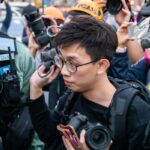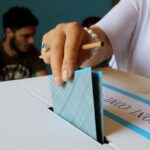We explain what self-censorship is, what its reasons may be and multiple examples. Also, how it affects democracy.

What is self-censorship?
Self-censorship is the form of censorship, that is, of silencing of expression, which is carried out by the person or institution themselves rather than by an authority or external entity. In other words, self-censorship means repressing or hiding one's opinions and thoughts, for fear of the consequences that this may bring.
The exact reasons that drive self-censorship can be varied, but in general they have to do with the fear of possible retaliation. For example, a person may self-censor his feelings or opinions in a work meeting if he fears that his boss will punish him for doing so. For this reason, self-censorship It is very common in authoritarian regimes and states of exception in which censorship and repression are routinely exercised, so sooner or later fear makes people censor themselves.
In fact, self-censorship is considered a very negative factor for the health of democracies, given that It is a way of restricting freedom of expression especially when it affects the media, whose duty to society is to inform truthfully and in a timely manner.
It is also possible that self-censorship takes place out of convenience, that is, when the person or institution does not want to reveal the truth, since they obtain a gain or an advantage by not doing so.
See also: Freedom of the press
Examples of self-censorship
The following are some possible examples of self-censorship:
- A media outlet that is threatened by an authoritarian government can henceforth avoid controversial or uncomfortable news, since publishing it would result in reprimand from the State.
- A medical journal that leaves out a scientific article because it reveals compromising information about the products of a pharmaceutical company that finances the journal and that could withdraw its funding if it is published.
- A person who represses his or her opinions on a controversial topic while among religious fanatics for fear of what they may think.
- A journalist who falsifies the information he has obtained in his investigation about a local mafia, to avoid getting into trouble with criminals, since they could attack him.
Continue with: Journalism
References
- “Self-censorship” on Wikipedia.
- “Self-censorship” in the Language Dictionary of the Royal Spanish Academy.
- “Etymology of Censorship” in the Online Spanish Etymological Dictionary.
- “The fear factor – why journalists censor themselves” in Council of Europe.





